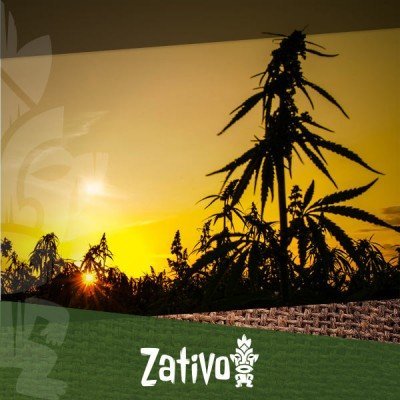Don't have an account?
Register NowYou have to add to cart at least 5 bottles or any program to make checkout.
- Blog10 Common Misunderstandings About Hemp
10 Common Misunderstandings About Hemp
Published: June 17th, 2016
Categories:
Other subjects
Hemp can be quite the anomaly, a substance that can be a benefit to both the environment and the economy. Hemp was actually a legal requirement for farmers to grow in the 17th century; it seems today that the only thing stopping a new-age hemp revolution is its association with its much-derided cousin, cannabis. Is ignorance on the subject robbing the world of a vital, life-changing substance? We separate the myths from the downright mind-blowing.
1) HEMP CAN GET YOU HIGH
An old argument that is often thrown around is that hemp is a drug and can get people high. Must it be a drug, right? It looks like cannabis? Wrong. The THC levels in industrial hemp is far too low for anyone to ever get high from. Furthermore, hemp has high levels (no pun intended) of another cannabinoid known as CBD, which actually counteracts the psychoactivity of THC. So no, hemp cannot get you high.
2) HEMP CULTIVATION MAKES IT EASY TO HIDE MARIJUANA
Another argument against Hemp is that large scale growth will make it easier for those dastardly marijuana growers to conceal their crop. Again, this is fantasy. The properties in hemp mean that the pollen it produces would lower the levels of THC in any cannabis it pollinated. Veteran weed growers see it more as a cannabis killer than a cannabis camouflage. Which brings us to our next point...
3) HEMP IS THE MALE CANNABIS PLANT
Hemp plants can be male or female, sometimes both at the same time when exposed to stress – known as a hermaphrodite. However, it is female plants that are most desirable, as the male variant dies immediately after releasing its pollen.
4) HEMP CULTIVATION WILL RUIN THE CANNABIS INDUSTRY
It is not only the anti-drugs campaigners who are against the growth of hemp. Some stoners around the world are concerned that a large-scale growth of the hemp plant will ruin the THC levels of the cannabis plants we all know and love. This is also wrong, if the two crops are grown separately, the two industries can thrive at the same time with no damage to the integrity of either plant.
5) HEMP WILL CAUSE YOU TO FAIL A DRUGS TEST
The US Military recently banned soldiers from eating hemp-based food products in fear that it would compromise drugs tests and cause users to test positive for cannabis. This is also false; labs that do drug tests on a routine basis are unable to find THC traces in even the most regular hemp user.
6) HEMP LEGALIZATION WILL LEAD TO AN INCREASE IN CRIME LEVELS
"Them bloody stoners, if they legalise hemp there will be more drugs addicts," says the woman stumbling about drunk. "There will be more crime, stupid junkies," says her male companion moments before drunkenly kicking over a street sign. It is a regular argument against marijuana as well, yet even more ludicrous when talking about hemp. Hemp is not psychoactive (unlike alcohol), and does not cause any form of addiction. Its uses are purely practical and therapeutic.
7) HEMP LEGALISATION IS JUST A WAY FOR PEOPLE TO LEGALISE CANNABIS
There is a worry that the legalisation of hemp is just an avenue for cannabis campaigners to further the legalisation of weed, so anti-cannabis campaigners want to see hemp remain illegal. While there are certainly people out there that want to see both legalised, and campaign for such, there are also those whose interests only lie with hemp. Hemp has been shown to have widespread and numerous practical uses that can benefit everyone, and farmers want to grow it. To ban it because of fear of another substance is not only ignorant but wrong.
8) HEMP IS OF NO BENEFIT TO THE ECONOMY
In 2014, the approximate value of the hemp industry was an estimated $450million in the US alone. This is during a period where hemp farming is largely illegal in the U.S. Hemp has all sorts of economic implications and is used for producing textiles, food, cosmetics, building material, fuel, plastics, and paper, often in a much more sustainable way than current methods – leading us to our next point…
9) HEMP IS OF NO BENEFIT TO THE ENVIRONMENT.
Hemp is one of the few plants able to improve the quality of the soil it is grown in; the products made from hemp are also 100% biodegradable too! It is easy to grow, sustainable, grows faster than most other crops and is highly resilient to pests and disease – cutting down on chemical pesticides. We can make environmentally friendly plastic and fuel from it. The list goes on.
10) HEMP ISN’T THAT NUTRITIONAL, IT IS JUST A FAD
Hemp seed is one of the most nutritionally balanced foods availabe to humans. Its main draw is protein, making up 35% of it. It makes hemp seed one of the richest sources known to society – more so than red meat, nuts, poultry, fish, other seeds or dairy products. It is also a complete source of protein, containing all of the proteins the human body needs. In addition to this, hemp is full of minerals, anti-oxidants, vitamins, and a perfect balance of essential fatty acids.
It is such a powerful food source that hemp seed has seen societies, such as early settlers in Australia, survive severe famine and drought. It is a super food in every sense of the word and is not going anywhere as far as nutritionists are concerned.
It just goes to show, hemp is a largely misunderstood plant, but has the potential to revolutionise the way we live, making us healthier, richer, and more environmentally friendly. It is time to help the hemp revolution and spread the knowledge.





